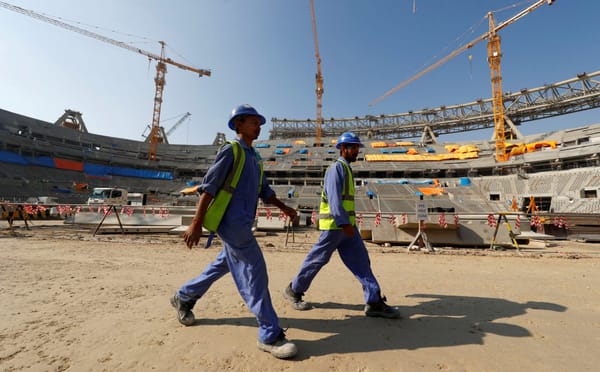The Politics of “Unskilled" Labor in Qatar—An Interview with Natasha Iskander
With the approach of the 2022 World Cup in Qatar, Natasha Iskander speaks to Arang Keshavarzian about the politics of labor that underpin the tournament – and their devastating effects. From the deliberate framing of migrant workers as “unskilled” to the regulation of workers protests, minimal refor











